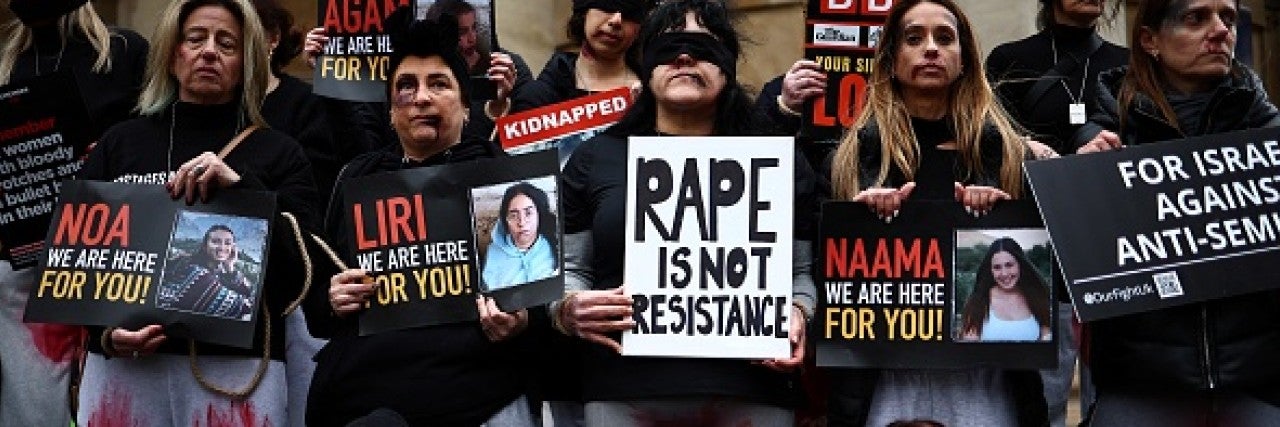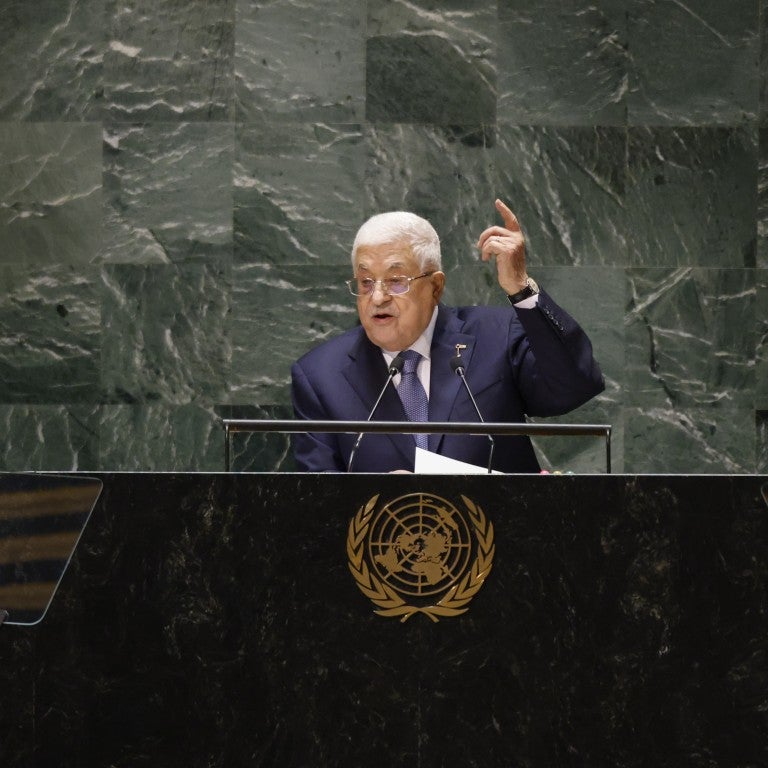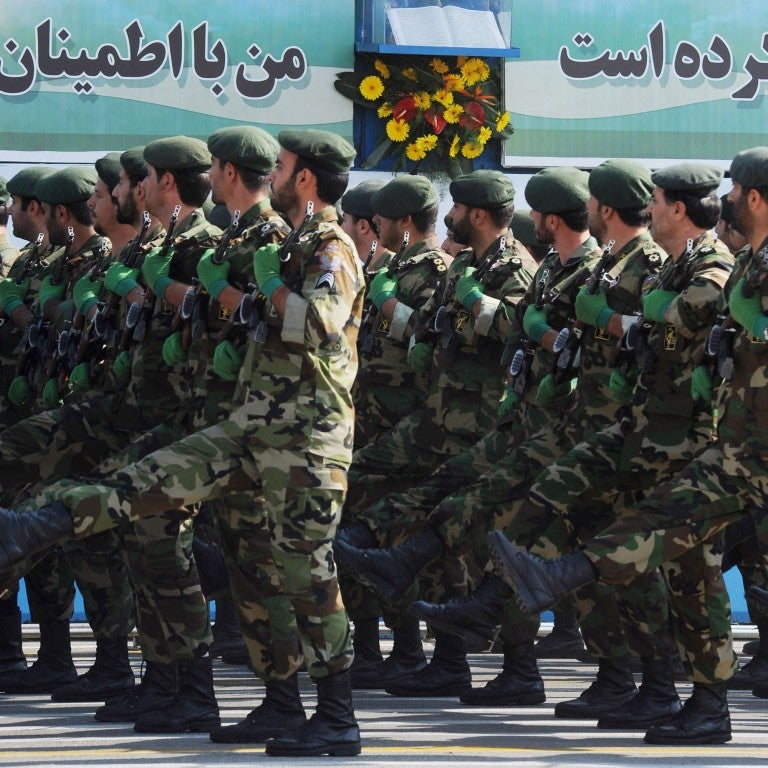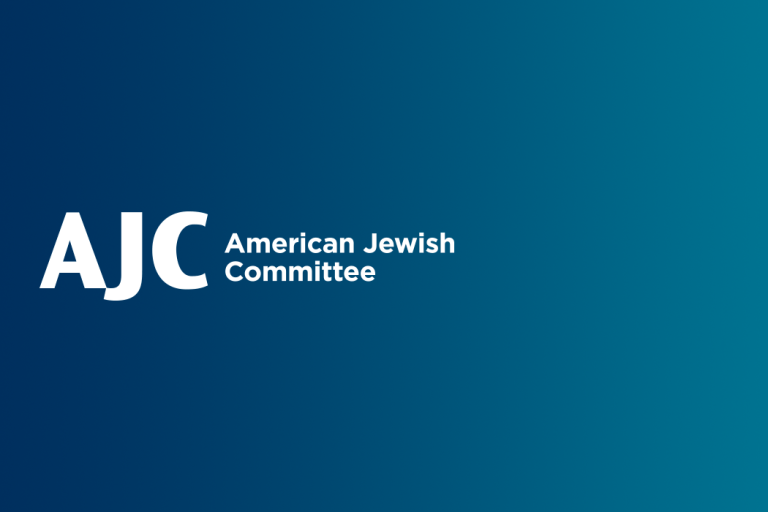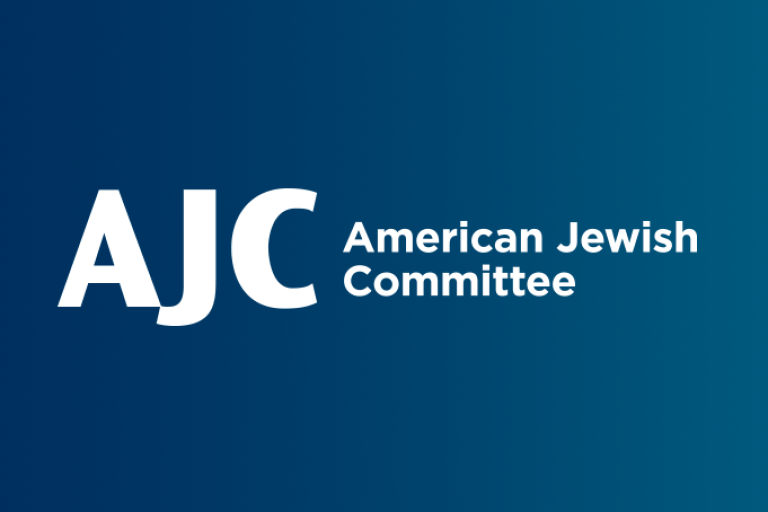February 22, 2024
During their murderous rampage across Southern Israel on October 7th, Hamas weaponized sexual violence. Over 138 days later, denial of these crimes runs rampant despite verified evidence and testimony from survivors of the NOVA festival, the attacked kibbutzim, and freed hostages.
Hear from Julie Fishman Rayman, AJC’s Managing Director of Policy and Political Affairs, on the efforts in Congress to stand in solidarity with Israeli victims of Hamas’ sexual violence, and what you can do to make sure the plight of Israeli women is heard.
*The views and opinions expressed by guests do not necessarily reflect the views or position of AJC.
Episode Lineup:
- (0:40) Julie Fishman Rayman
Show Notes:
Act:
Listen – People of the Pod on the Israel-Hamas War:
- When Antisemites Target Local Businesses: How Communities Are Uniting in Response
- How A 10/7 Survivor is Confronting Anti-Israel Activists on College Campuses
- Tal Shimony Survived the Hamas Attack on the Nova Music Festival: Hear Her Story of Courage, Resilience, and Remembrance
- How to Mark International Holocaust Remembrance Day in a Post-October 7th World
- Follow People of the Pod on your favorite podcast app, and learn more at AJC.org/PeopleofthePod
You can reach us at: peopleofthepod@ajc.org
If you’ve appreciated this episode, please be sure to tell your friends, and rate and review us on Apple Podcasts.
Transcript of Interview with Julie Fishman Rayman:
Manya Brachear Pashman:
This week, the Association of Rape Crisis Centers in Israel delivered a report to the United Nations detailing the systemic sexual violence committed by the Hamas terror group during and after the October 7 attack on Israel. The horrific report follows a bipartisan resolution adopted by the US House of Representatives last week, condemning the use of rape and sexual violence. Here to discuss that resolution is AJC’s Managing Director of Policy and Political Affairs, Julie Fishman Rayman. Julie, welcome.
Julie Fishman Rayman:
Thank you so much, Manya.
Manya Brachear Pashman:
So anything bipartisan on Capitol Hill is rare and worth discussing. Can you walk our listeners through the details of the resolution and explain why there was such unity around it?
Julie Fishman Rayman:
Absolutely. So the resolution was introduced in January. And it really came out of a concerted effort on the part of mostly female members of Congress, who were hearing about what had gone on on October 7, and what was continuing to go on in Israel as it related to gender based violence and sexual assault.
And they read the tea leaves of the deafening silence on behalf of the global community and said, if people aren't believing Israeli women, we are going to show that Congress, the American Congress, is united in believing Israeli women. So there are two resolutions, in the House and in the Senate, the resolution in the House passed.
And they're pretty straightforward, expressing this sense, both of outrage and outlining some next steps. So in addition to condemning rape, and all forms of sexual violence as a weapon of war by Hamas, calling on nations to criminalize rape and sexual assault and hold perpetrators accountable, including by armed groups, which is somewhat of a different take on this.
Calling on international bodies to really condemn these atrocities in a way that we have seen too many of them pause or hesitate or simply remain silent. Reaffirming the US government support for an independent, impartial investigation —this is very important— into what happened on October 7th and afterwards, and reaffirming this commitment to supporting survivors, which is, I think, so critical in this moment.
It’s one of those things you could say, Oh, of course, we support the survivors. But recognizing the reality of what's going on in Israel today, and how this trauma continues to play for those victims, is really critical, right. In this moment, Israel is not focused on supporting the survivors of rape and sexual assault, not because it's not important, but because they're still fighting a war and focusing on you know, rebuilding and what to do with the hundreds of thousands of people who have been displaced from their homes, to elsewhere.
So in the hierarchy of need, addressing all sorts of trauma, is it has to be sort of lower on the totem pole and hopefully will be addressed. But that's a piece of what the international community can do and what Congress is trying to do. Just express that support and solidarity.
Manya Brachear Pashman:
Calling on international bodies to condemn sexual violence, international bodies such as the UN, correct?
Julie Fishman Rayman:
Yes.
Manya Brachear Pashman:
All right. Can you tell us a little bit about the report that the Association of Rape Crisis Centers released this week?
Julie Fishman Rayman:
It's a really important report. Not least of which because in some ways it's the first sort of fully fleshed out credible report about the atrocities of the seven. And in a lot of ways it's important also because it pushes us to be uncomfortable, right?
I think a lot of why this issue has been sidelined or pushed aside is not just because Israel continues to be fighting a war. And their myriad other issues, the release of the hostages, etc, that are really, there's all these competing needs, both in our minds, as people who are sympathetic to these causes, but also in the world, and in terms of advocacy.
But it really pushes a lot of these deeply uncomfortable themes to the forefront. So for example, there's a whole section in this report about the sadistic practices of Hamas, binding and tying, mutilation or destruction of genitalia, insertion of weapons into intimate areas, destruction and mutilation of the body. It's grotesque. It is hard to read about, it's hard to say. But in some ways, I think that's sort of our responsibility, right?
We who have not thank God lived through this trauma can be the voices for those who have and may not feel comfortable coming forward to tell their stories, may not have the emotional capacity or stamina, to tell their story and relive the horrific trauma that they suffered. So every time I sort of talk about this issue, I try to make whoever I'm speaking to, especially women, say the really uncomfortable things that we're taught as young children not to say in polite society, talk about vaginas, talk about rape, talk about fondling of breasts and mutilation and all of these things.
Because if we're not comfortable saying it out loud, we're not going to be comfortable doing that advocacy that's so important.
Manya Brachear Pashman:
Has sexual violence been used or highlighted as a weapon of war elsewhere, Julie, that we know of?
Julie Fishman Rayman:
It’s enough of an instrument of war, that it's been deemed a war crime. I think that this, like so many things that took place on October 7, it was used to such a degree that the global community at some point will have to reckon with how we treat or how we consider sexual assault as an instrument of war.
But certainly in lots of other places this is the sad reality. And I would say the sad reality of sort of the treatment of women. But of course, we know from October 7, that it wasn't just women. It was women, children, accounts of men being sexually abused. Even men who are still hostage in the tunnels in Gaza, there are reports of sexual abuse against them.
So we sort of think about it in terms of gender based and focused specifically and solely on females. But the sad reality is, that's also not the case. And for men, especially, I think the stigma can be that much more heightened. So knowing that it could take years or even decades for us to fully understand the full gravity of the situation of what happened on October 7th against women. When it comes to men and other victims, we may never understand the full scope of what happened and what continues to happen.
Manya Brachear Pashman:
What is the progress of the resolution in the Senate?
Julie Fishman Rayman:
It's moving. It’s been introduced, it has about a quarter of the Senate as co-sponsors, which is significant. There’s a need for swift movement, I would say and greater advocacy so for listeners, they can go to AJC.org and find our action alert, calling on senators to co-sponsor and support this really important resolution when it's up for a vote.
This is one where again, our advocacy is critical and sometimes we shy away. But it's much easier to send an email to your Senators than it is to actually have to talk about these really awful issues.
So for anyone who is looking for a 30 second way to sort of comfortably take action on this important issue, the action alert is a really good and meaningful way to do so.
Manya Brachear Pashman:
Can you kind of walk us through the advocacy efforts that push this through the House of Representatives, but also are pushing it through the Senate? In other words, are there victims participating in this, families of victims? What kinds of stories, and again, this could be a very uncomfortable portion of our conversation, what kinds of stories are being shared with people to convince them to put their name on this resolution?
Julie Fishman Rayman:
A lot of the stories are coming from the family members and loved ones of current hostages. So there's there's an amazing piece of advocacy going on, in the halls of Congress nearly every week that that touches on this, but isn't entirely about the sexual assault. But it's about those families coming whether they're Americans, Israelis, or some other nationality. And they have family members who are still hostage. They are coming week after week, day after day, to speak to members of Congress to keep that issue at the forefront. And of course, for a lot of them the hostage issue is part and parcel integrally connected to the issue of gender based violence.
So for example, there's a woman who has been to DC several times already. And who is coming back next week to talk specifically about gender based violence. Her name is Yarden Gonen. And she is an amazing advocate for her sister, her sister Romi, who is young, she's in her 20s. She was at the Nova festival.
And she had this horrific experience of being shot, calling her mother saying I've been shot, I've been bleeding. And while she was on the phone, her mother relays that they heard screaming, screaming in Arabic, screaming in Hebrew. And then the sounds got louder and louder, the voices got louder. And then Romi shut the phone and was taken into Gaza and is still held hostage. She is one of the few women still held hostage.
And so her sister tirelessly comes to tell her story. With this sort of recognition, this sad recognition that probably all of our worst fears. You know, hopefully not God forbid, but our worst fears about sexual assault are possibly happening to her sister with frequency or regularity. And she's one example you know.
There’s another woman who comes also to advocate in Washington, but elsewhere as well, who actually works on this issue. She works in rape centers and working on sexual assault in Israel for many years. So she comes to talk about her cousins and her family members who experienced a raid on a kibbutz but specifically through this lens and says, I know, the type of trauma that women experience. I know why they don't speak out, why it can take years, even not in war time. And this impossible situation that Israeli women are now being faced with right where they have to before they're ready before they have the emotional capacity, tell their stories because the world is not believing them.
Because there needs to be this public cry, believe Israeli women. Me too unless you're a Jew, all of this you know, horrific silencing, that now they're they're forced into telling these stories and the long standing trauma that will certainly continue. not just because of what they experienced. not because of the sexual assault and rape but then also because of the the repeated trauma of sharing that with others.
Manya Brachear Pashman:
Of course, this advocacy is also happening in other countries as well. AJC's Berlin director Remko Leemhuis told us about Shani Louk, another Supernova festival goer, who was actually filmed by terrorists and that film was released. She was experiencing horrible treatment. Unfortunately, she did not survive her captivity. But certainly her story lives on in Germany, and her family has spoken out about some of the crimes committed against her. And there's certainly evidence of that, as well.
Julie, who were the champions of this resolution on Capitol Hill, who really supported it, lobbied for it. And I'm talking about the US House of Representatives, but also which senators are indeed putting their name on it?
Julie Fishman Rayman:
So in the house, it was really the brainchild of Kathy Manning, Lois Frankel, Mario Díaz-Balart, and Jen Kiggans. And some of those names will probably be familiar to listeners. Kathy Manning is one of the co chairs of the bipartisan Task Force for Combating Antisemitism. Lois Frankel, another very outspoken Jewish female representative, who leads a lot of the sort of women's groups and women's caucuses on Capitol Hill.
In the Senate, it's an all female cast, which I think is beautiful. In both the House and the Senate, you have two Democrats and two Republicans. But in the Senate, it's all women, Jeanne Shaheen, Kirsten Gillibrand, Doug Fisher and [Katie] Britt from Alabama. They've really emerged as champions on this issue.
Especially, you know, Kirsten Gillibrand is the senator from New York. She's going to the floor nearly every week to tell the stories of hostage families, about what happened in Israel on the seventh, the sexual assault, etc. And she's not alone. There are true champions that have been kind of tapped into because of this unspeakable trauma. And their voices, I'm sure will outlive this war, certainly, the hostage crisis, I say, hopefully, and with a lot of prayers. That kind of advocacy continues.
Of course, there are others. Everyone, I'm sure by this point has seen the images of Senator John Fetterman’s office, where he has every single hostage poster, sort of wallpapered in his office. And his staff are tracking who's released, who's still being held, who do we know is already deceased? They're tracking it as closely as the Hostages and Missing Family Forum is in Tel Aviv. They're so on top of it. They're great friends.
In Congress and the administration around the world. What you said about the work of our Berlin office is absolutely true. These issues are being raised by AJC at the EU in Brussels, in Paris, at the Vatican, really throughout the country and throughout the world.
Manya Brachear Pashman:
The only abstention in Congress was Congresswoman Rashida Tlaib, a woman. Has she explained why she saw problems supporting such a resolution, but also why she didn't outright object to it?
Julie Fishman Rayman:
Her response was really a case of classic Whataboutism. You know, how can you speak about the Israeli victims while not speaking about Palestinian victims? And that's something that we've heard increasingly on social media. Oh, there are there Palestinian victims as well of sexual abuse. It's a really twisted distortion of reality. While horrible things happen in wartime, there's there's no comparison to Hamas’ systematic, targeted, brutal, sadistic, planned assault on Israeli women and anything that could be happening elsewhere.
Hamas has really sort of set the benchmark and I say that with some irony for what sexual assault as a weapon of war can look like. So I'm not surprised by Congresswoman Tlaib's vote. It tracks with other votes that she's taken and other statements that she's making. And I think for her, it's very personal. You know, she has Palestinian roots, she has Palestinian family members. So I imagine for her, all of this is very, very personal, very sensitive. And she probably comes to this issue with a great degree of defensiveness as well. That said, the sheer fact that she was standing alone as the only voice not affirming this condemnation, says a great deal.
Manya Brachear Pashman:
Did she explain why she didn't outright object to it?
Julie Fishman Rayman:
I don't believe that she did.
Manya Brachear Pashman:
What else is AJC trying to accomplish in Washington right now? What more is needed?
Julie Fishman Rayman:
Certainly, we need the Senate to pass this resolution. There's this continued fight over foreign aid for Israel. How do we get Israel the support that it needs in terms of material and munitions, etc? And a lot of that is tied up in a political battle over, do we fund Israel alone? Do we find Israel and Ukraine and Taiwan and other allies who are sort of collectively fighting against forces of authoritarianism or anti democratic forces? And then, of course, then there's additional layers, do we also then fund efforts to secure our border in different ways? And the more you sort of add into this pot of money, the more additional avenues or or recipients the more opportunities there are for poisoned pills.
So AJC is working really hard to try to continue the fight for Israel to get the support they need, for Ukraine to get the support that they need, as they continue to fight Russian aggression. It's an uphill battle. And so, so, so political. But those are the really the key advocacy items.
And of course, we continue, as I said before, to support a number of family members and loved ones of hostages as they come week after week to tell their stories on Capitol Hill. Next week, actually, we have a delegation specifically to talk about gender based violence. And it's going to include the sister of one of the hostages who I mentioned before, a part of the Zaka search and rescue team who went and saw bodies as they were being prepared for burial and witnessed the clear and really atrocious evidence of sexual assault.
A reservist for the IDF, who he was off duty, but the minute that he heard the news about the Nova festival and what had happened there, he went to help and try to try to rescue people and saw bodies that had clearly undergone sexual assault. Naked bodies, a male body with cut genitalia, talking about how it's not just women, who are victims here. A woman's body with her breast cut off a young woman with massive bleeding in and around her genitalia.
And then also a survivor of the Nova festival, who saved himself by hiding in bushes, but heard repeatedly over and over again, the sounds of rapes happening. So we're bringing these people to Washington to tell their stories to members of Congress, to diplomats, to State Department officials and other members of the administration. To continue the momentum.
We're really lucky that most of the audiences that we'll be reaching, do believe. They've already reached that first hurdle of believing Israeli women, but now need to be urged continuously to take those stories on as as their own to continue that advocacy and to make sure that those stories don't stand on their own, but they have echoes throughout throughout the halls of Congress, throughout Washington throughout you know, the EU, the UN, other multilaterals until this attention really gets this issue really gets the attention that it deserves.
Manya Brachear Pashman:
Why aren't women being believed?
Julie Fishman Rayman:
For all, for all conflicts like this, for any other case, massive or individual, where a woman has experienced sexual assault, our first response is supposed to be belief. We're supposed to believe, we're supposed to hear. It is the opposite of innocent until proven guilty, you are a victim until or unless it can be proven otherwise. We start with belief. So the fact that that hasn't been the case here, it defies explanation.
It defies our understanding, and unfortunately, really heightens the need for the victims to tell their stories, the witnesses to tell their stories. It is horrific that these people are being put in this place where they have to continue to tell this story because people aren't believing them. I wish I had a better explanation for why they're why they're not being believed.
That being said, there are reasons voiced as to why Israeli women aren't being believed. There are reasons given that to some may hold sway. And they're worth acknowledging, because that's part of the narrative that is incumbent on all of us to address and rebut.
Part of it we hear is because there's not always that clear cut evidence. This was war time. The worst attack against Jews since the Holocaust. A truly traumatic moment for Israel. They were not doing the job that maybe in retrospect, they should have done in terms of rape kits, and documenting all of that evidence.
For Zaka, the search and rescue team, they traditionally don't take photos, that's not a part of their mandate. And in some ways they feel it's a violation. You know, it's not a part of the holy work that they're doing in terms of collecting body parts and trying to keep victims, victims of terror of the seventh and preceding, trying to keep those victims as whole as possible. So there's this sort of dearth of evidence. But there's plenty of credible accounts. So I say that, but it doesn't explain why people aren't being believed. There's no explanation for that.
Manya Brachear Pashman:
Well thank you so much Julie for joining us. And for those listeners out there who would like to do more and push the senate to adopt that resolution, you can go to AJC.org/BelieveIsraelis.
Julie, thank you.
Julie Fishman Rayman:
Thank you for having me and Manya, I can't thank you enough and People of the Pod enough for shining some light on this really horrific story that needs to be at the forefront of all of our attention.
